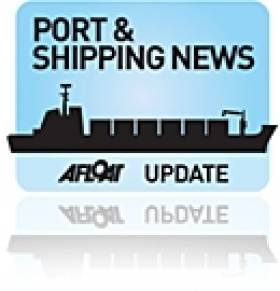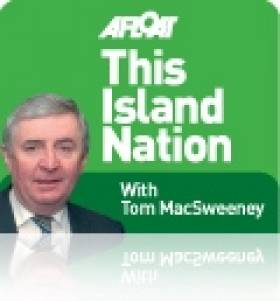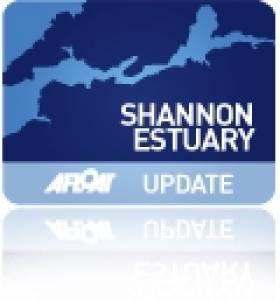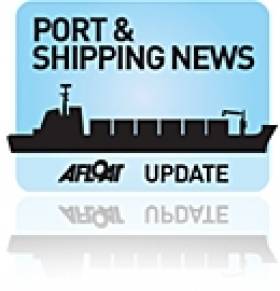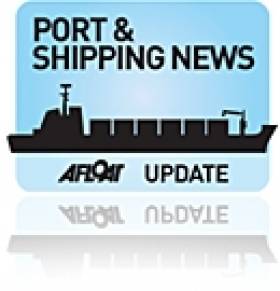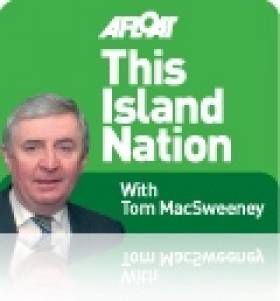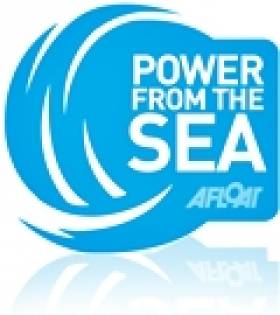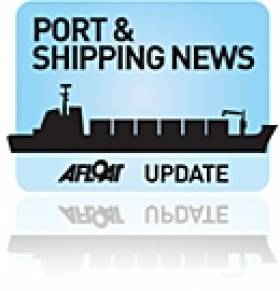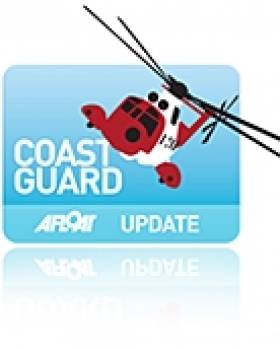Displaying items by tag: Ports
#ports – None of the nine state owned Irish ports are to be privatised but local authorities are to become shareholders in regional ports and private investment will be welcome too, according to the National Ports plan launched this afternoon.
Plans to radically overhaul Ireland’s commercial ports and give Government a more hands-on role in the maritime ports sector were unveiled by Minister for Transport, Tourism & Sport Leo Varadkar.
The policy sees four major areas of reform and a warning that much more is expected of every port in terms of its commercial return to the state.
Up until recently a dividend has only been paid by Dublin Port but recently other Ports have begun to pay dividends too, Varadkar told reporters this afternoon.
The new National Ports Policy aims to harness the potential of every port in Ireland. Shareholders will be encouraged to take an activist approach to managing their ports to ensure the State gets best value from these crucial facilities, whether that shareholder is the Government or the local authority.
Previous policies have not recognised the huge diversity among the 19 ports that handle commercial freight. The core objective of the new National Ports Policy is to facilitate a competitive and effective market for maritime transport services.
Although ports will be key players in Ireland's future economic recovery the significance of the ports sector as part of national infrastructure is not well appreciated but this policy says Varadkar is 'a championing document for all ports'.
Ports are to be designated in different tiers. Dublin Port, Port of Cork and Shannon Foynes are Tier 1 and ports of national significance. There is also a second tier of nationally significant ports namely; Waterford and Rosslare. With 95% of everything coming into this country arriving by ship, these five ports are the life blood of trade and play a significant role in the well being of the State.
“Our commercial ports are vital to our economic recovery and to future economic growth. They are the gateways for most of our merchandise trade, and for significant numbers of tourists and passengers. This new ports policy encourages each port, large or small, to develop its full potential to ensure that each one can contribute to further growth in the ports sector,” the Minister said.
These ports are charged with leading the response to national capacity requirements, something that is long overdue because port capacity has not been matching growth in traffic for either unitised and non–unitised cargo.
The policy follows the launch of a 30–year masterplan for Dublin Port Company a year ago and the launch of the Shannon Estuary master plan last month.
Already there has been evidence of recovery in port volumes, a key indicator of economic activity. Total exports in the Irish economy last year hit their highest level ever at 16 per cent above the pre-crisis high. The Port of Cork bucked a trend last August when it announced a 5% upwards trend in traffic.
All other ports are classed as having 'regional significance' and must develop in line with local requirements. In Dun Laoghaire for example where the harbour is in the middle of the town the port expected to focus on tourism, cruise liners and marine leisure activity.
The plan to move ports into the control of the local authorities will require legislation and this may take a year and a half to complete.
Ports will have to develop dividend policies for the second quarter of this year and they must develop a port performance management system by 2015.
Changes are to be made to the board appointment process and management too.
The ports policy has been shaped with the Department of the Marine's Oceanwealth initiative and it also takes into account a new foreshore regime being developed by the Department of the Environment.
The main features of the new policy are:
· Instead of adopting a ‘laissez faire’ approach, the Government will become a more active or activist shareholder;
· Private investment in the ports will be encouraged;
· Move from a ‘one size fits all’ policy to one that recognises that different ports have different roles to play, now and in the future. In recognising the different roles of each port, this policy determines which are of National Significance and have a national function, and which are of Regional Significance with a specialist significance at national level:
o Ports of National Significance (Tier 1) are designated as: Dublin Port Company, the Port of Cork Company and Shannon Foynes Port;
o Ports of National Significance (Tier 2) are designated as Rosslare Europort and the Port of Waterford Company;
o Ports of Regional Significance: The remaining 14 ports account for 8% of national trade, but many have national significance in terms of specialist services or products. These include the five State companies at Drogheda, Dún Laoghaire, Galway, New Ross and Wicklow. These Ports of Regional Significance will be placed within a local authority-led governance structure with local authorities taking shareholdings in the ports.
· Future investment in deepwater capacity, when needed, will not occur until it has been subjected to stringent analysis commissioned by the Department, and will be led by the national ports;
· The commercial mandate of ports will remain. They will be expected to turn a profit, pay a dividend and will not receive Exchequer grants.
The new policy will allow for appropriate private-sector investment in ports. A new performance oversight system, and a new approach to capacity planning, will be developed to make sure that all ports are fulfilling their potential.
Welcoming the publication of the National Ports Policy, the Director of the Irish Maritime Development Office Glenn Murphy said: ‘The Policy provides clarity to our port companies in terms of their future direction, but importantly for the thousands of Irish and International companies that depend everyday on effective and efficient ports to connect their business with the global economy’.
Minister Varadkar added: ‘Too many governments have taken a one-size-fits-all approach to our ports sector. We want to end this laissez-faire approach, and encourage shareholders to take a much more hands-on attitude to maritime ports. This new National Ports Policy represents an important change in approach towards the Government’s management of these important assets and provides an overarching vision for the future development of the sector’.
Detailed information from Minister's Dept:
The core objective of national ports policy is to facilitate a competitive and effective market for maritime transport services. The Policy categorises the ports sector into –
· Ports of National Significance (Tier 1): Dublin Port Company, the Port of Cork Company and Shannon Foynes Port Company, each of which accounts for more than 15% of national trade;
· Ports of National Significance (Tier 2): The Port of Waterford Company and Rosslare Europort; either of which accounts for between 2% and 15% of national trade;
· Ports of Regional Significance for development principally in regional freight, leisure, aquaculture facilities, urban regeneration or cultural and recreation amenities.
The Government expects the Ports of National Significance (Tier 1) to lead the response of the State commercial ports sector to any future national port capacity requirements. There is also a role in this regard for the two Ports of National Significance (Tier 2) to develop additional capacity to aid competitive conditions within the unitised sectors (Lift On/Lift Off and Roll On/Roll Off) in particular. These five ports collectively handle approximately 92% of all tonnage handled at Irish ports in any given year.
The importance of the five other State commercial port companies is recognised by their designation as Ports of Regional Significance. These ports: Galway, Drogheda, New Ross, Wicklow and Dún Laoghaire – retain important regional roles as regional freight distribution hubs, but also increasingly important roles in areas such as marine leisure and tourism.
The policy envisages the Government as a more 'active shareholder' in those State commercial port companies designated as Ports of National Significance. This will be facilitated through:
· A realignment of central Government shareholding in those Ports of National Significance and a transfer of control of the smaller Ports of Regional Significance to local authority control;
· A requirement that relevant Ports of National Significance submit clearly stated dividend policies to the Department by the end of Q2 2013;
· The integration of existing Irish Maritime Development Office financial analysis with emerging operational benchmarking systems at a European level to allow for the development of a port performance management system by 2016;
· The introduction of on-going origin and destination surveys by 2016 to independently establish freight flows to/from the ports;
· Commissioning independent capacity forecasting analyses at regular intervals from 2018 onwards;
· Changes to the Ministerial / board level relationship to ensure that Government policy is embedded within all levels of corporate and commercial development.
This more active approach toward the management of our key international maritime gateways represents a sea change in attitude and will allow Government to benchmark the performance of our ports and the return on our investment. The future development of the Ports of Regional Significance is best placed within the framework of their regional and local communities and it is therefore proposed to allow for their transfer to relevant local authority ownership.
The National Ports Policy commits to working with the ports sector and the relevant Departments (Arts, Heritage and the Gaeltacht and Environment, Community and Local Government) to ensure that port development and environmental protection are mutually respected.
The National Ports Policy document is available to download below.
Speech by Minister for Transport, Tourism & Sport Leo Varadkar at the launch of the National Ports Policy
I am delighted to launch today a new National Ports Policy which described the Government's vision for our commercial ports sector.
Our ports are important to our economic recovery and our future economic prosperity. However, their contribution to our economy is frequently overlooked.
The Competition Authority recently estimated that approximately 84% by volume and 62% by value of all goods moved into or out of the State comes through our ports. We rely on our ports to provide us with imported oil and coal, vehicles and many consumer goods.
Many of our major export sectors, for example pharmaceuticals, chemicals and agri-food, are heavily reliant on our commercial ports. Also, ports can be important for tourism both in terms of passenger ferries, car ferries and cruise ships.
As an island nation we depend on our ports to an even greater degree than many of our trading partners. Hence the need to get the policy right.
But ports are much more than trading gateways to the world. They often have deep-rooted links into their community, are steeped in history and are centres for leisure and amenity. They are also frequently located in or beside areas of great natural beauty and importance for wildlife.
There is also a great diversity among the 14 ports that handle commercial freight each year – in terms of the size and scale of their business, the sort of ships and goods handled and the type of financial and organisational resources available to ports and governance.
Policy to date has not recognised this diversity in the role and function of our ports.
I am determined that the importance of all our ports is recognised at the highest levels of Government policy, but am also aware that the current policy is no longer appropriate.
This new policy is different in a number of ways:
· We will move from a 'one size fits all' policy to one that recognises that different ports have different roles to play, now and in the future
· Instead of adopting a 'laissez faire' approach, the government will become a more active or activist shareholder
· Future investment in deepwater capacity, when needed, will not occur until is has been subject of proven analysis led by the Department
· Local authorities will be given a greater role as shareholders in smaller ports
· Private investment in the ports will be encouraged
· The commercial mandate of ports will remain. They will be expected to turn a profit, pay a dividend and will not receive exchequer grants
Core Objective
The core objective of National Ports Policy is to facilitate a competitive and effective market for maritime transport services. In my view there are a number of different aspects to achieving this objective.
Firstly, we must be clear about which Ports are of National Significance. As detailed in the new Policy, the Government recognises Dublin Port Company, the Port of Cork Company and Shannon Foynes Port Company as our Ports of National Significance (Tier 1).
Additionally the Government also recognises the Port of Waterford Company and Rosslare Europort to be Ports of National Significance (Tier 2). National Ports Policy must be focussed on those ports which fulfil a national function.
Secondly, in relation to those ports which serve a regional or local function, we must provide an appropriate governance framework that allows for their continued future development in a manner that best suits their individual circumstances. It is also recognised that while none of these ports account for more than 8% of national trade, they can have national significance in a niche service or product area.
This new category of ports includes the five smaller State port companies in Drogheda, Dún Laoghaire, Galway, New Ross and Wicklow. These Ports of Regional Significance will be placed within a local authority led governance structure with local authorities taking shareholdings in the ports. This will require legislation, further consultation and time.
As regards Government's role as shareholder, I am firmly of the view that Government must be a more active and demanding shareholder. By that I do not mean an 'interfering' shareholder, but a shareholder that clearly outlines its vision and demands of the sector as a whole, as well as its expectation for individual ports. This will include a re-emphasis on the ports' commercial remit with a requirement that to adhere to a dividend policy and invest and develop on a sound commercial basis.
While no ports are earmarked for privatisation, private sector investment and involvement will be encouraged.
Finally, our ports enjoy a unique location and are frequently sited in - or beside - designated special protection areas for birds and habitats. This has obvious consequences in terms of the complexities involved in ensuring the appropriate balance between economic development and environmental protection. These complexities can be best resolved through early and meaningful engagement between all stakeholders in understanding the differing roles and responsibilities in these important areas.
This new National Ports Policy seeks to address each of these aspects in turn and will provide the entire sector with an appropriate policy framework to allow all our ports to develop in a sustainable manner and ensure that the State is served by the type of port infrastructure and services it requires.
#ports – A lecture on Green Ports and Harbours by Patrick McCabe will be held this Thursday (March 28th, 6.30pm) at the James Joyce centre, North Great George's Street, Dublin 1.
This lecture explores the changing role of ports and harbours in Ireland and Europe as catalysts for new development in towns and cities. It explores their potential, not just as areas of trade, but their emerging role as knowledge hubs, cultural quarters, recreational landscapes, sustainable energy hubs, and even instigators of agricultural growth.
The lecture draws on the recent work of REDscape in Ireland and the Netherlands.
An ongoing research project by REDscape Landscape & Urbanism, comparing the development of harbours in Asia and Europe led to the creation of a number of spatial initiatives to demonstrate the application of their work, including a vision for the Port of Dublin, "Green Port Dublin" Also discussed are new development strategies, including the public realm plan, led by REDscape for the harbour quarter in Deventer; a self build, bottom up development in an existing industrial area in the Netherlands, recently published in the Dutch yearbook for Landscape Architecture and Urban Design.
All are welcome. Admission is free to ILI members, non-members €5
How Government Misled Maritime Public, Respect for the ISA & the Unluckiest Ships' Captain?
#islandnation – On THIS ISLAND NATION this week... How the Government has misled the maritime public ... The unluckiest Ships' Captain? ..... What about this collision in Singapore! Have you checked your marina's ladders? And much more...
Government reform to make its administration more efficient and supportive of the maritime sector is urgently needed. It is time that political parties are required to deliver on the promises they make when seeking election. They have been allowed to mislead the public for too long in this regard. This is what Fine Gael promised in its General Election Manifesto under the heading "Steering the Marine":
Marine Department
Marine and fisheries policy is currently spread across three Departments. Fine Gael will merge these responsibilities under one Department for better co-ordination in policy delivery
But the number of Departments across which the marine is spread has increased to five since Fine Gael and Labour took over Government. There are five Ministers and a similar number of Ministers of State with have responsibility for aspects of the maritime sphere. When they concluded a pact for Government, Fine Gael and Labour indicated that it was their agreed view that maritime matters should be brought under just one Department. Surprise, surprise, where political promises are concerned, this was not implemented. Instead the situation has worsened.
How can the Government be so blind to the potential of the maritime sector? Would this not make you wonder about how efficient it is in protecting the interests of this nation in development of our offshore resources?
HAVE YOU CHECKED YOUR MARINA'S LADDERS?
The wife of a friend of mine slipped between their boat and a marina in going ashore and fell in the water. There was no marina ladder anywhere in the vicinity and he had to get help from others on the marina to pull her out and onto the marina. Shocked by what had happened he walked the entire marina and could not find a single safety ladder which would help recovery in such an emergency. This marina is in Ireland, he told me. Have you checked your marina?
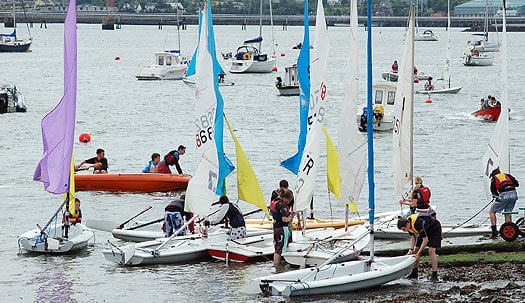
Youth dinghy sailing
RESPECT FOR THE ISA
"A national sailing authority must command the respect of those it serves to do its job efficiently. If it doesn't, it can't." That comment is one of several I have received since the future of dinghy sailing was discussed at the annual general meeting of the Irish Sailing Association. "A long, slow decline in the sport which has, as its root cause, bad policy decisions taken at ISA level," is a serious accusation, carried in reports from the meeting, another aspect of which struck me was that there were just 80 delegates reported present. That number does not strike me as strong representation of sailing clubs around the country.
In recent years it has been comfortable to be told that sailing was expanding rapidly and I have seen more youngsters taking part, but what was raised at the ISA a.g.m. does cause concern: "We need face some realities. It's always dangerous when an organisation starts believing its own public relations." That is another quote I have seen from the meeting. I was out of the country when it took place. A challenge has also been raised by Norman Lee from Wicklow and Bryan Armstrong from Sligo about the inclusion of "power" in the 2006 amendment to the ISA's objectives: "Is it a coincidence that what we see as the rot started around 2006? We make no apology for our interest in the sport of sailing meaning boats powered by the wind and this is what we want the ISA to refocus on."
The ISA has been directly and seriously challenged. It is up to the Association to earn the respect of the sailing public.
UNLUCKY OR CARELESS CAPTAIN?
The most unlucky Ship's Captain about whom I have heard is named Captain Rochfort who commanded two ships which went on the rocks in two months!
Both were steamships and seem to have been pretty close to shore when they hit rocks. The first, the iron paddle steamer Minerva, had a hundred passengers and twenty-two crew aboard and was reported at full speed on the evening of August 29, 1854 en route from Liverpool to Cork but too close to the rocky islands known as the Skerries off Anglesey in Wales. Captain Rochfort ordered a change of course but the vessel struck the Victoria Rocks, took water and began sinking. All aboard got off safely. In subsequent reports, the Captain was praised for his actions as the ship was abandoned.
However the attitude towards him changed two months later when he came under severe criticism and investigations were demanded into his handling of the Ajax, an 800-ton paddle steamer with 400 h.p. engines. She had 300 people aboard en route from London and was also sailing too close to the shore. She struck "well-charted rocks" near Plymouth. Other ships came to the rescue and all aboard were saved.
The two shipwrecks were a disastrous period for the Cork Steam Ship Company which operated services from Liverpool and London. This intriguing story is told by Ronnie Herlihy in his book, 'Tales from Victorian Cork.' The company offices can still be seen on Penrose Quay in the city.
NOW WHAT ABOUT THIS EXAMPLE OF COMMAND?
Having read about Captain Rochfort, I saw this example of command (above) which happened on March 3 in the Straits of Singapore, a very busy transit point for shipping, when a smaller vessel began going to port and getting closer and closer to a bulk carrier. Listen to the audio on the bridge of another ship as the incident was filmed and, despite all the warning soundings of hooters and horns, a collision occurred. The Singapore Coastguard reported that there were no casualties, but there was serious damage to the smaller ship. Investigations are continuing.
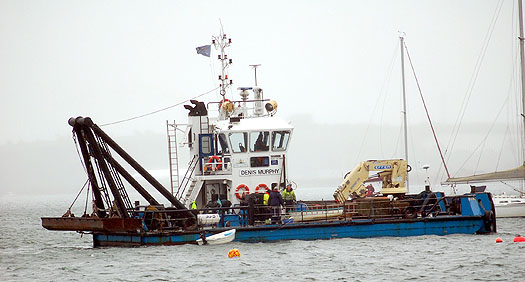
Cork Port vessel inspects mooring buoys
MIND YOUR CORK BUOYS!
If you own a mooring in Cork Harbour take careful note that from this Monday, March 11, Cork Port Company intends to begin removing all "unauthorised, unpaid or illegibly marked moorings". It seems a bit early to be doing this as many leisure boat people don't become active until April/May and some not until June. I put this to the Port Company which responded: "The routine of checking moorings has always been undertaken during this time of year by our staff, but also continues during the season. As you pointed out, it may seem early in the season, however, we find the most suitable time to undertake this activity is when unauthorised moorings are free of boats. We note from past surveys that genuinely responsible mooring holders keep a regular check on their mooring throughout the year."
So, you have been warned!
DUNMORE EAST RNLI CHANGE
In Dunmore East, County Waterford, Michael Griffin has taken over from Joefy Murphy who retired as Coxswain of the local lifeboat after 14 years in the position during which he was involved in many emergency services. Joefy had been on the lifeboat crew since 1997, a great record.
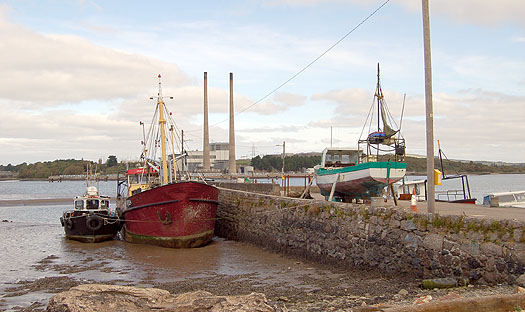
Cheekpoint pier
WATERFORD ESTUARY FISHING DECISION NEEDED
Fishermen in the Waterford Estuary who decided not to take compensation but to hold onto their traditional drift net salmon licences have suggested that salmon stocks in the Nore, Suir and Barrow, which feed the estuary have recovered enough to allow access to their traditional fishery at Passage East, Cheekpoint, Dunmore East, Ballyhack, Duncannon and Arthurstown. The economic and social effects of the banning of drift net fishing on fishing communities in these areas has not been adequately examined.
Email: [email protected]
For regular Marine News follow on Twitter: @Afloatmagazine and @TomMacSweeney
Master Plan for Shannon Estuary Launched
#Shannon - The Shannon Foynes Port Company has launched its master plan for the development of port infrastructure and services along the Shannon Estuary.
RTÉ News reports on the 30-year plan, titled Vision 2041, which will involve the construction of a new deepwater birth at Foynes, the development of warehousing and facilities across 300 acres of additional land - and the potential reopening of the Foynes-Limerick railway line, which has lain dormant since 2001.
As one of the deepest waterways in Europe, the estuary is also in prime position to take advantage of the new 'post-panamax' supertanker shipping era, and talks on securing future foreign direct investment as a priority.
As previously reported on Afloat.ie, submissions for the accompanying strategic plan for the development and management of marine-related industry and tourism in the Shannon Estuary region closed last week.
The Draft Strategic Integrated Framework Plan (SIFP) for the Shannon Estuary, the first of its type to be developed in Ireland, identifies a number of strategic sites along the estuary for future possible development in the areas of industry, tourism, energy, fishing and aquaculture and marine-related industry.
Paris To Host Shortsea 13 Convention
#Shipping - The European Shortsea Conference will take place for the first time in France on Thursday 14 March 2013.
Shortsea 13 at La Defense in Paris is organised by the Bureau de Promotion du Shortsea Shipping (BP2S) and SPC France jointly with other European Shortsea promotion centres - and comes just weeks after the Euromaritime exposition that kicks of tomorrow in the French capital.
The conference will cover a number of hot topics related to shorts and intermodal intra-european transport, the challenges that exist and are yet to come, and what solutions can be found.
And like last year's event, hosted in Dublin by the Irish Maritime Development Office (IMDO) and Coastlink, the convention will provide a platform to network, discuss and debate issues shared by European shipping partners.
Organisers say that contributors are still welcome to take part as speakers (e-mail [email protected] for more) or sponsors (contact [email protected] for details).
Registrations will open soon for those wishing to attend as delegates. Keep an eye on the Shortsea 13 blog or find more information on the European Shortsea Network at www.shortsea.info.
Nine Commercial Irish Ports Recorded a Fall in Turnover of 3% in 2011
#ports – The Irish Maritime Development Office (IMDO) has released a report on its analysis of the semi-state port companies' published financial statements for the accounting period 2011. The focus of this analysis is to extrapolate key data from the annual company financial reports in order to provide a comparative review of the ports. The nine semi state port companies reviewed are all under the auspices of the Minister for Transport, Tourism and Sport.
The key findings of the report highlight that after a combined growth of 3% in turnover in 2010, the nine commercial ports recorded a fall in turnover of 3% in 2011 with turnover falling to €120m. The cost of sales remained relatively unchanged at €46.9 million. Despite the downturn last year, five of the ports managed to return profits which contributed to a total operating profit for the industry of €33 million, almost identical to 2010, with four ports recording operating losses totalling €353,640. Dublin Port generated 57% of the total share of turnover, up 3% from 2011, while it was responsible for contributing 83% of the total operating profits from the nine ports last year. Dublin and Cork, contributed a dividend to the State in the financial accounts for 2011 of 16.5million and €634,315 respectively. Galway has also announced their intention to pay a dividend in their 2012 accounts.
The latest analysis carried out by the IMDO also suggests that the majority of ports continued to reduce their costs during 2011. Labour costs fell by 8% last year, largely as a result of further reductions in the number of port employees from 429 to 389, which included a reduction of 11 employees as a result of the rationalisation of Dundalk Port Company. The total port labour force has now reduced by 26% since 2007. Eight of the nine companies recorded lower total labour operating costs in 2011.
The average return on capital employed (ROCE) increased to 2.44% last year. However only three of the nine ports provided a ROCE higher than the average, with Dublin Port highest at just over 10%.
The IMDO believes that trading conditions at Irish ports will remain challenging for the financial year 2012 with no anticipated prospects for overall growth in the principal cargo segments. The openness of the Irish economy will mean that any near to medium term recovery in traffic growth through Irish ports is likely to be dependent on a wider recovery occurring in the European and Global economy. Our forecast is that overall turnover and profits for the Irish ports will fall this year. However we still expect that the larger commercial ports will remain profitable while smaller regional ports are less likely to achieve breakeven levels this year.
A copy of the report is available to download below (pdf, 3.96 MB). The review, assumptions and opinions expressed within this report are exclusively those of the IMDO.
Ports Call for Co-ordinated Action, National Marine Plan & Col Regs
#islandnation – In THIS ISLAND NATION this week .... Determination at 70 .... The ports call for co-ordinated Government action .... Why is the public starved of information about the national marine plan? .... Galway Bay environmental controversy and who are the lobbying groups? ... Are the collision regulations understood and next year's coastal sailing gathering....
SAILING – OLDEST BUT NOT FINISHED
Sailing is a sport for all, at all ages and competitive sailing can vary from single-handed or fully-crewed racing boats to individual challenges, but round-the-world solo sailors are a breed apart.
Last Monday the oldest woman to sail solo around the world left Canada for her third attempt to do so non-stop. On two previous attempts she completed circumnavigations but stops in various ports caused by gear failure and damage at sea frustrated her non-stop attempts. With the distinguished surname of one of the great philosophers, 70-year-old Jeanne Socrates, left Victoria in Western Canada on the third attempt in her Najad 380 yacht, Nereida. She was forced to stop on Cape Town for repairs during her first attempt in 2009, which started in Lanzarote. A second non-stop attempt in October 2010 ended with a knockdown 100 miles west of Cape Horn the following January. However, she did manage to complete the single-handed circumnavigation last August after stopping in the Falklands, Cape Town, Tasmania, Tahiti and Hawaii.
"This is like any sporting challenge, I want to do it non-stop and I am determined to achieve it and be back here successfully, hopefully without any serious incidents along the way," she said on leaving!
PORTS – DUBLIN, CORK, SHANNON-FOYNES TOP PORT PROSPECTS
Since the launch of the Ocean Strategy Plan by the Government during the Summer there has been a lack of official information about progress on its implementation. The public is entitled to a better level of information about the implementation of plans which are announced with much publicity hype.
The Irish Maritime Development Office this week published its review of the capability of Irish ports to meet development requirements for the marine renewable energy. It reported a "consensus" amongst the ports on the absence of "any clear policy framework at a national level for the development of an ocean energy industry with the necessary political will to invest in the business."
This challenges the difference between what has been publicly said by various Government Ministers and what the Government is actually doing. My sources in the industry tell of dissatisfaction with attitudes they encounter. Consultations with some of the ports for the report were undertaken before the Government's marine plan "Harnessing Our Ocean Wealth," was published. This identified potential of the offshore ocean energy sector and proposed an action plan but not a lot has been heard about its implementation. The IMDO report has identified the need for clear, co-ordinated Government action to take advantage of the possibility of creating hundreds of jobs.
There was also general consensus amongst the ports about the need for a national website integrating information about Irish ports in terms of infrastructure and facilities to support construction and fabrication; operation, maintenance and servicing; and research and development. The IMDO says that this is something that would be relatively inexpensive for the Government to create and could be used as a central marketing and information platform by Government agencies and departments in communicating where national strategic competitive advantages lie.
Let's see if the Government's marine co-ordinating group responds positively or at all.
ENVIRONMENT – GALWAY BAY FISH FARM
The State fisheries board, Bord Iascaigh Mhara (BIM), has strongly attacked the environmental group, Friends of the Irish Environment and called on it to withdraw what is has described as a "spurious allegation" and apologise for what it alleges is a "slur" on BIM's reputation.
The row is over a claim by FIE that BIM suppressed reports regarding its application for an organic salmon farming license in Galway Bay which aims to create 500 jobs. The public consultation period for the project is underway, and closes at midnight on December 12. BIM has rejected the FIE allegation.
I will be interested to see how this develops.
There is a general issue about all environmental lobbying groups which, in terms of transparency, fairness and balance in public debate should be addressed. In dealing with State or public bodies we know information about them that is publicly available but there are so many different lobbying groups that a register of information about them, their membership strengths, who they represent, their financing, etc., would enable better assessment of their views.
SHIPPING – ARE COLLISION REGULATIONS UNDERSTOOD?
The Nautical Institute, the international professional body for seafarers, has raised the question of whether COLREGs are fully understood and if a lack of knowledge about them could be putting ships at risk.
In its journal SEAWAYS the Chief Executive, Philip Wake, says: "There appears to be a fundamental lack of understanding of the regulations by far too many mariners." The issue is discussed in the context of the 20th anniversary of the launching of the Mariners' Alerting and Reporting Scheme.
It could be added that there are many leisure sailors who also do not understand the collision regulations.
SAILING – GATHERING CRUISE
The Irish Marine Federation and Irish Sailing Association have announced 'The Gathering Cruise' as part of next year's plans for the celebration of the Irish diaspora.
It will take place from July 13 to August 1, with over 100 boats congregating in 'Gathering Ports' across the UK before sailing together to Ireland. "The Gathering Flotilla will assemble in Kinsale for a welcome reception," says the ISA and then "flotillas will have an opportunity to explore the coastline of West Cork and Kerry for a week of unscheduled cruising. All boats will then gather again in Dingle, Co. Kerry for a Gathering Cruise farewell reception and 'scattering' where boats will have the option to continue their cruise in a northerly direction in the company of other cruise participants. Gathering Welcome Ambassadors will be available in Welcome Ports along the Irish coastline."
BOOKS – JEANIE SHOULD HAVE BEEN A DIFFERENT COLOUR!
With the Jeanie Johnston hosting maritime stories aboardship in Dublin Port as to the atmospheric creaking sounds of the famine Ship's hull enveloping the audience I was interested to read that there was an original colour scheme for the Jeanie Johnston that would have made her stand out strikingly at sea – all yellow sails, red-coloured masts and a bright orange decorative strip with false black porthole outlets on the hull. That was proposed by Fred Walker, the ship's architect. When completed the tall ship was less dramatic in appearance – traditional white sails, natural wooden masts and a white strip with false black portholes.
That was one conception, reproduced in this book which was changed.
This book is predominantly a photographic record by the author who voyaged in her in 2005, Liverpudlian Michael English. My particular favourite picture is that of the two crew members who found a spot aloft to have an 'al fresco' lunch, while the one of crew members furling sail on the topsail yard will test your head for heights!
Sailing the Irish Famine Tall Ship Jeanie Johnston, by Michael English, published by Collins Press €29.99
Email your comments on maritime matters to: [email protected]
Follow @TomMacSweeney
Irish Ports to Capitalise on Offshore Renewable Energy Services
#ports – The Irish Maritime Development Office (IMDO) says Irish Ports are in a good position to captialise on the growing demand for offshore renewable energy services.
Last month Afloat reported that both Minister for Communications, Energy and Natural Resources Pat Rabbitte TD and the Chairman of one of the world's leading developers of offshore wind energy, Eddie O'Connor of Mainstream Renewables spoke of Ireland's unique position as a leader of offshore power at an International Conference on Ocean Energy in the National Convention Centre in Dublin.
Ireland's offshore renewable energy resources are amongst the highest in the world with a potential of between 63,000 and 73,000 MW of power available for harnessing. Ports will play a key role in facilitating future large-scale developments and operations of ocean energy devices (wind turbines, wave energy converters and tidal turbines).
In a report published today the entitled "The Irish Ports Offshore Renewable Energy Services" (IPORES). The IMDO provides a detailed summary of information on Irish port infrastructure, facilities and management plans in relation to meeting requirements of marine renewable energy developers. The report found that at least seven Irish ports are in a good situation to facilitate and service both current and future demands of the offshore marine renewable sector. The report identifies that large scale development projects in particular have strong potential to generate several hundred new jobs and other positive economic benefits for the regions.
The report provides a number of recommendations including the establishment of clear targets to deliver new offshore ocean renewable projects at Irish ports leading to new investment and employment opportunities.
The study involved a detailed stakeholder consultation process and analysis of 14 ports around the island of Ireland including a comparison with some key renewable energy services ports in the UK and Germany. Irish Ports were categorised according to criteria that would meet the requirements to service the offshore renewable energy sector which included port infrastructure, available quay space and hinterland, depth of water, past experience with the sector, proximity to markets, potential for job creation and availability of skills and maritime services.
The full The Irish Ports Offshore Renewable Energy Services report is available for download below as a pdf
Irish Ports Growth Levels Slowed in 2011
#PORTS – The pace of the volume recovery that began in 2010 for the Irish Ports and Shipping sector slowed last year with only one of the five principle cargo segments seeing any growth, according to the latest annual edition of the Irish Maritime Transport Economist, which was released at an industry briefing in Dublin, today (April 19th) by the Irish Maritime Development Office (IMDO).
The analysis highlights that only dry bulk volumes increased by 5% year on year, while unitised traffic on the main Roll-on/Roll-off routes were flat with no growth in 2011, and the Lift-on/Lift-off container sector endured its 4th consecutive decline, down by3%. Elsewhere oil tanker volumes declined 2% and break bulk fell by 3% to the year end.
The Irish ports and shipping sectors were confronted with a year of two distinct halves: 6 months of growth followed by 6 months of weaker demand. After a solid first quarter we witnessed clear evidence of shipping volume demand cooling over the remaining quarters. Shipping volume growth almost halved in the second quarter before turning flat to negative over the remaining quarter to the year end as the expectation about the pace of the global recovery, and also European sovereign debt issues, remained.
“The latest report again shows a strong correlation between developments in the real economy and the changing pattern of maritime traffic over the course of last year.” said IMDO Director Mr. Glenn Murphy. “We are optimistic, that despite the slowdown in the pace of the recovery last year, that most of the heavy volume losses have already been sustained, however the scope for growth this year remains limited and contingent on improved demand conditions in global markets. ”
The report does note that exports of container traffic to key overseas markets in the US and Asia increased by 5%, driven by the performance of the chemical, pharmaceutical and food & drink sectors, in particular dairy and meat exports. Traffic volume demand to and from the UK remained flat.
Providing the foreword to this years report, the Minister for Transport, Tourism and Sport, Leo Varadkar TD, commented “The efficient transport of goods into and out of the country is crucially important and supporting this is a key function of my Department. The development of a new ports policy will be of interest to those in the maritime transport sector. The existing ports policy is in need of a substantial overhaul. It is largely focused on corporate governance, it treats each of our nine port companies as though they were the same size and had the same role to play, and advocates a laissez faire approach by Government. It is my intention that, in the coming months, a new ports policy will be published and put in place”
The report concluded that the outlook for 2012 is for limited growth across the principal cargo sectors. Container imports from overseas markets recorded their 20th consecutive quarter of negative growth, which continues to provide logistical challenges for shipping lines seeking suitable container capacity to meet export demands. The continued rise of bunker/fuel prices which have grown by 40% over the past 12 months remains a constant challenge for owners and operators in all market segments.
Go-Ahead for Killybegs Coastguard Station
#COASTGUARD - The Office of Public Works has given the go-ahead to a long-awaited new coastguard station for Killybegs, the Donegal Democrat reports.
The multi-million-euro three-storey station - replacing the current 20-year-old building, which is deemed no longer suitable to demands - will be constructed at the Rough Point and will include a boat house and pollution control centre.
The Irish Coast Guard unit at Killybegs has 25 volunteer members, and also operates as a mountain and cliff rescue service. The unit serves one of Ireland's busiest ports.
The Donegal Democrat has more on the story HERE.



























